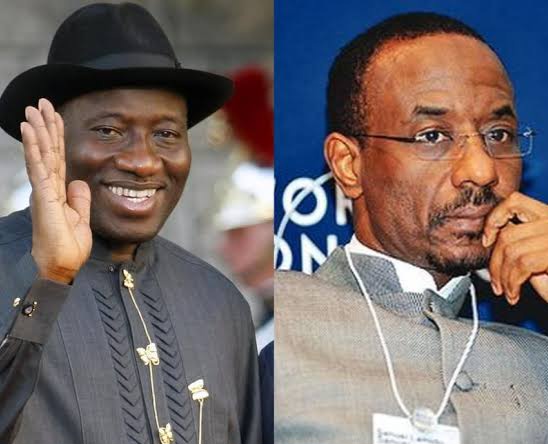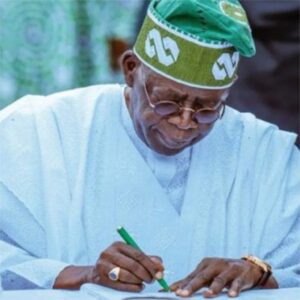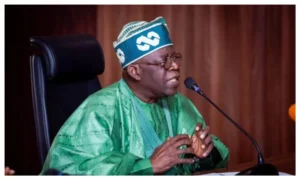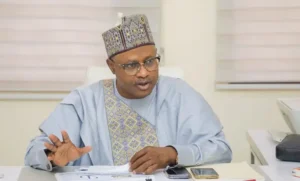On September 26, 2024, a significant event unfolded in Abuja as former President Goodluck Jonathan and Emir of Kano, Alhaji Muhammadu Sanusi II, met publicly for the first time in a decade. This reunion was particularly noteworthy given their fraught history, which began in 2014 when Jonathan suspended Sanusi from his role as governor of the Central Bank of Nigeria (CBN) following Sanusi’s revelation that $49.8 billion was allegedly missing from government accounts.
Sanusi’s suspension sparked widespread controversy and debate across Nigeria. He had raised alarm bells about financial mismanagement within the Jonathan administration, claiming that a substantial sum was unaccounted for. This assertion led to tensions between the two, culminating in Sanusi’s removal, which many viewed as an attempt to silence dissenting voices.
The meeting at the launch of a book edited by former Finance Minister Shamsuddeen Usman was a long-awaited moment. During the event, Jonathan and Sanusi exchanged friendly greetings, indicating a thawing of their previously strained relationship. In a moment of levity, Sanusi referred to Jonathan as “my boss that sacked me,” highlighting the complicated dynamic between them. However, he tactfully chose to refrain from delving into their past conflicts during his speech.
Jonathan took the opportunity to respond to the allegations that had marred their relationship. He clarified that Sanusi’s claims about being sacked for whistleblowing were not entirely accurate. “It was not that he was sacked; he was suspended,” Jonathan asserted. He explained that the Financial Reporting Council, which oversees the CBN, needed to investigate the allegations but was unable to do so before Sanusi’s term ended. This statement sought to paint the situation in a different light, suggesting that the circumstances surrounding Sanusi’s departure were more complex than simply being a case of retaliation.
In his remarks, Sanusi expressed continued respect for Jonathan and emphasized the importance of focusing on the book rather than their historical disputes. “I feel most inappropriate for this to turn into a debate. It’s not about me or the President; it’s really about Dr. Shamsuddeen Usman today and his book,” he stated. This comment underscored his desire to shift the conversation toward more pressing issues facing Nigeria.
Sanusi further addressed the overarching challenges plaguing the nation. He pointed out that Nigeria has been held captive by an elite class more concerned with personal profit than serving the citizens. He lamented the systemic issues that have contributed to Nigeria’s struggles, stating, “For decades, the Nigerian state has been captive to an elite class that sees the state as a site for personal gain.”
One of the critical issues Sanusi highlighted was Nigeria’s dependency on imported petroleum products. He criticized the vested interests that benefit from this situation and called for a shift towards local production. “Why would anyone stop us from having the capacity to produce our own refined petroleum products?” he asked, underscoring the absurdity of Nigeria relying on imports for a resource so vital to its economy.
Sanusi’s remarks resonated with many, as they highlighted the urgent need for Nigeria to develop its resources and reduce its dependence on foreign imports. He stressed the importance of empowering local industries to fulfill the country’s needs and contribute to economic growth.
The reunion of Jonathan and Sanusi is a reminder of the complex nature of Nigerian politics, where personal relationships often intertwine with larger national issues. Their meeting may signify a potential reconciliation, but it also brings to light the ongoing challenges Nigeria faces in governance, transparency, and economic independence. As both figures reflect on their past, the focus must now shift toward ensuring a better future for the Nigerian people.







